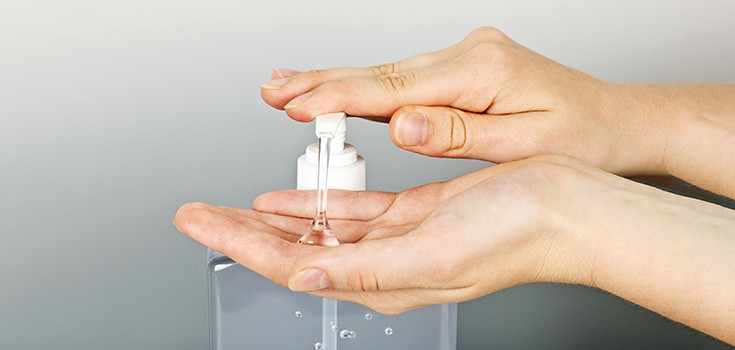Triclosan Dangers and Antibacterial Soap: Chemical Weakens Heart and Body in 1 Hour

Triclosan appears like a knight in shining armor in personal care product advertisements and antibacterial soap, but recent research has unmasked it to reveal it as a ubiquitous, health-hazardous chemical. You may have heard of triclosan dangers before, but what you’re about to find out may be surprising. Here is why you may want to avoid antibacterial soaps and hand sanitizers.
Weakened Heart and Body: Just one of the Many Triclosan Dangers
Researchers at the University of California, Davis published their study in the Proceedings of the National Academy of Sciences linking the popular chemical triclosan to muscle function impairments in humans, mice, and fish. Exposure could eventually contribute to heart disease and heart failure because of reduced contractions in cardiac and skeletal muscles—unsettling news given the chemical’s growing prevalence since the 1970s.
“The levels in humans—including plasma, urine and breast milk—have been steadily increasing,” lead author Dr. Isaac Pessah tells FoxNews.com. The Center for Disease Control and Prevention has found triclosan in about 75 percent of the population.
Pessah’s team found that, with even low concentrations, triclosan impairs essential muscle contractions. Within an hour, exposed mice experienced a 25 percent reduction in heart function, something that can be “lethal and certainly debilitating.”
Triclosan as an Environmental Toxin
With all the swine flu hubbub and germophobia present in today’s superficially crisp-clean society, triclosan has become ubiquitous in antibacterial personal care products. This includes soaps, toothpastes, sanitizers, and more. Triclosan dangers aside, all the hype of being germ-free may actually harm health in other ways. The issue is today known as the hygiene hypothesis. For more on that, click the link.
And its sheer volume makes it difficult to contend with on a commercial as well as environmental level, according to Pessah. “[Companies] try to prevent some chemicals getting out past the water treatment plants so they can dispose of them in a different way, but they can’t capture all of it because there is so much of it.”
FDA says Soap and Water Will Do
Of course this isn’t the first we’ve heard about triclosan dangers. Back in 2010, the Food and Drug Administration tentatively warned the public about triclosan’s effect on the endocrine system—and the possibility of leading to the emergence of drug-resistant super bacteria. A 2005 advisory panel to the FDA even agreed that there was no substantial evidence that antibacterial soaps with triclosan worked better than soap and warm water.
For safer alternatives to triclosan, make your own cleaning and personal care products using natural and often cheap ingredients like:
- Vinegar, white or apple cider depending on use
- Lemon juice
- Essential oils like peppermint (for baking soda-based toothpaste and water-based mouth rinse)
- Tea tree oil, which has been proven to fight even the dreaded H1N1 virus
Check out other ways to replace your toxic cleaners naturally.
Additional Sources:

What about the triclosan in toothpaste?
Which is the safest toothpaste to use? Does anybody know?
Soul Pattinson Chemists here in Australia have a natural toothpaste that I use.
Otherwise, make a paste of salt, bicarb soda (baking soda) and water … or even a little bit of peroxide.
You get used to the taste pretty quickly, but you could put in a little bit of peppermint oil.
Make your own the only safe thing.
Crest Total Whiteing and their mouth wash
or anything organic
This includes soaps, toothpastes, sanitizers, and more. Triclosan dangers aside, all the hype of being germ-free may actually harm health in other ways.
I am a RN and am constantly using alcohol based hand sanitizer because that is what is provided to me and in home care a sink isn't always available.. I hate it! I squirm every time I have to use it because I believe all of this antibacterial garbage is contributing to the strength and development of super bugs (antibiotic resistant bacteria)!
Once again..Ava Anderson Ton Toxic to the Rescue! http://www.AvaAndersonNonToxic.com/KatieL
Yes baking soda and coconut oil are a good combination.
What is the best Under arm Deodorant for someone with Heart and Thyroid issues?